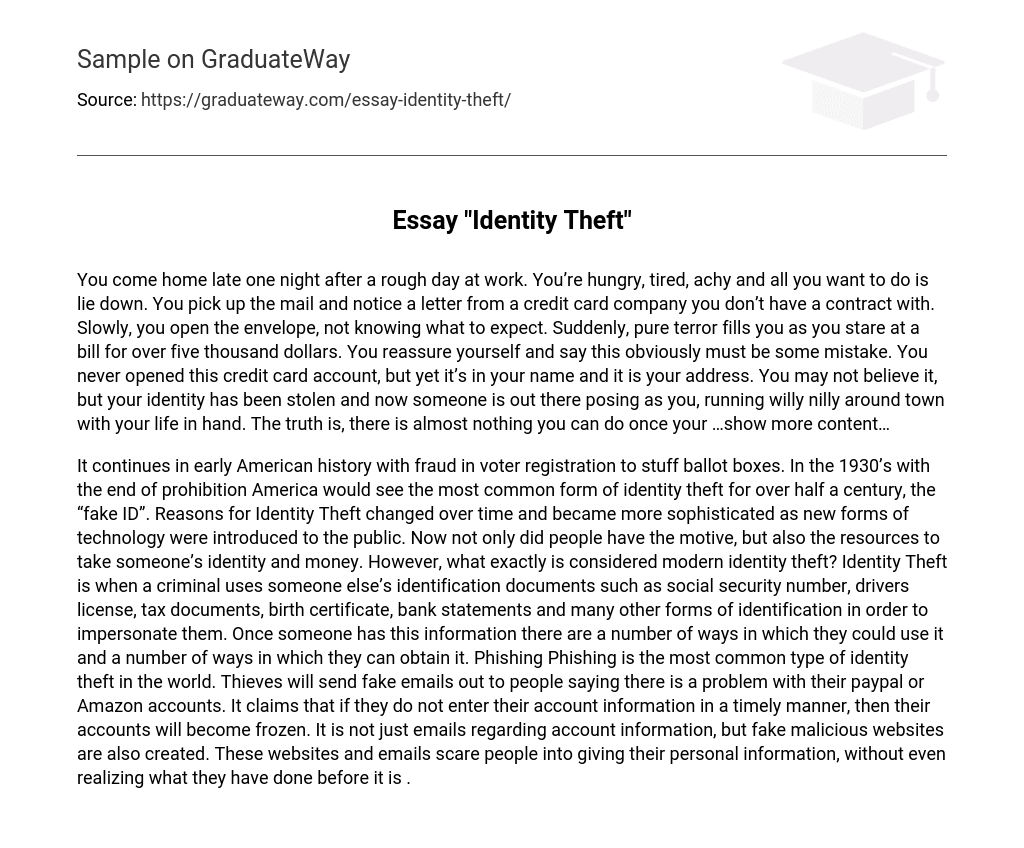You arrive home late one night after a difficult day at work. You are exhausted, famished, and in pain, longing to lay down. Upon picking up the mail, you notice an unfamiliar letter from a credit card company. Tentatively, you open the envelope, uncertain of what awaits you. Suddenly, an overwhelming sense of fear engulfs you as you behold a bill totaling over five thousand dollars. Trying to reassure yourself, you think that this must surely be a mistake. You never authorized the opening of this credit card account, yet it bears your name and address. It may be hard to believe, but your identity has been pilfered, and now there is an impostor out there masquerading as you, freely venturing around town with your life in their grasp. The sad reality is that there is little you can do once your show more content.
The history of identity theft in the United States can be traced back to early American history, during a time when fraudulent practices such as voter registration fraud and ballot box stuffing were widespread. In the 1930s, following the end of prohibition, a prevalent form of identity theft known as “fake ID” emerged and persisted for over fifty years. As technology advanced over time, identity theft became more sophisticated, providing individuals with both motive and resources to unlawfully obtain someone else’s identity and money. However, what defines modern identity theft? Modern identity theft occurs when a criminal utilizes another individual’s identification documents (such as their social security number, driver’s license, tax documents, birth certificate, and bank statements) with the intention of assuming their persona.
Various methods can be used to obtain and access information. Phishing is the most common form of identity theft globally. Scammers send individuals fake emails, alleging problems with their PayPal or Amazon accounts. They warn that not promptly providing account details will lead to account suspension. These deceptive emails are often accompanied by manipulative websites that trick people into unknowingly revealing personal information without fully understanding the potential consequences.





